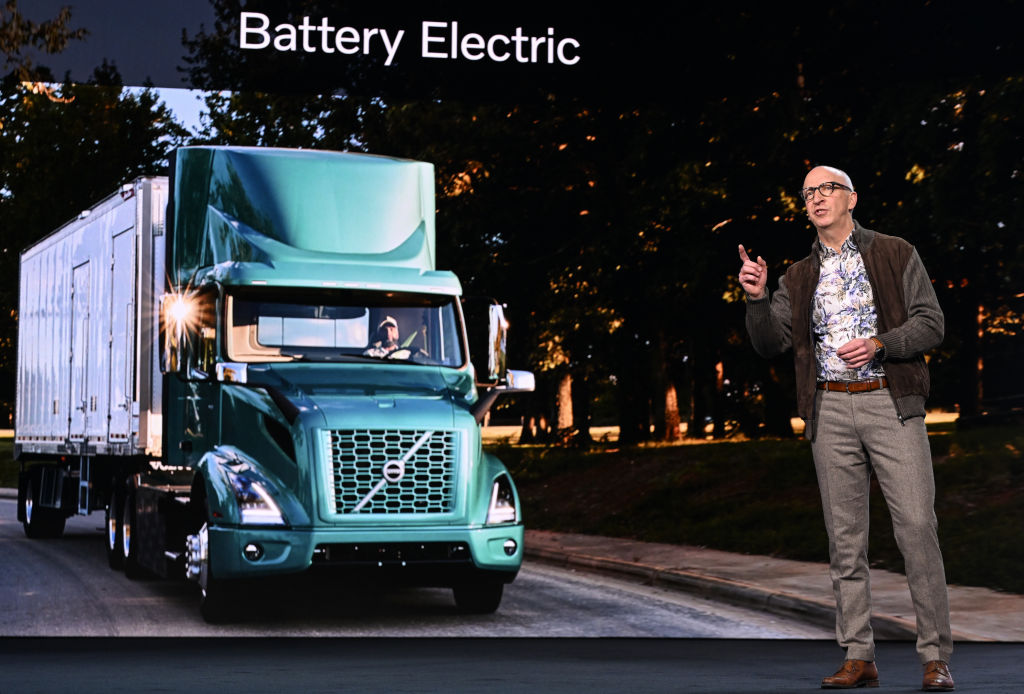But Volvo’s actions, particularly in the U.S., tell a story of delay, double standards, and missed opportunities.
Promises Made: Volvo’s Vision at CES 2025
In his keynote, Lundstedt celebrated Volvo’s legacy and its ambitious goals:
- A Legacy of Innovation: Highlighting Volvo’s 40-year presence in the U.S. and Mack Trucks’ 125-year history, Lundstedt framed the company as a pillar of transportation innovation.
- Commitment to Sustainability: Volvo pledged to achieve net-zero emissions by 2040, emphasizing three core technologies: battery-electric vehicles, hydrogen fuel cell technology, and renewable-fuel-powered internal combustion engines.
- Global Leadership: Volvo touted its electric trucks’ presence in 49 countries, covering over 130 million kilometers, and its hydrogen-powered prototypes as evidence of global progress.
- Collaboration for Change: Lundstedt stressed the importance of partnerships with governments, startups, and even competitors to drive systemic transformation.
On stage, Volvo seemed poised to lead the industry into a cleaner, greener future. But the reality of its actions—especially in the U.S.—paints a starkly different picture.
Reality Check: Volvo’s Actions in the U.S.
While Volvo’s global messaging focuses on progress, its behavior in the U.S. actively undermines these goals. The company’s record reveals a troubling gap between rhetoric and reality:
- Opposition to Clean Truck Standards: Volvo, through the Truck and Engine Manufacturers Association (EMA), has worked to weaken or delay clean truck regulations, including the Advanced Clean Trucks (ACT) rule. These standards are critical to electrifying the U.S. truck market.
- Misinformation to Dealers: Volvo has contributed to misleading truck dealers about the ACT rule, falsely suggesting it would restrict diesel truck sales. This has sown confusion and resistance among stakeholders who are key to the transition.
- Electric Truck Pricing Disparities: Volvo’s electric trucks in the U.S. are priced up to $80,000 higher than comparable models sold in Europe. This unjustified discrepancy makes zero-emission vehicles inaccessible to many American businesses.
- Investments in Diesel Manufacturing: Volvo’s recent $700 million investment in a new plant in Mexico to produce diesel trucks for North America directly contradicts its promises of electrification and fossil-free leadership.
- Pushing False “Clean” Solutions: By promoting biofuels and fossil gas as “clean” alternatives, Volvo perpetuates pollution rather than committing fully to zero-emission technologies.


